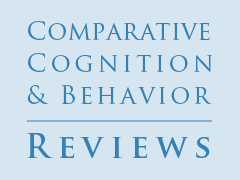Anthropomorphism Revisited
by William Timberlake,
Indiana University
Reading Options:
Download/Read PDF | Add to Endnote
Abstract
The MIT scientist Donald Griffin, widely-recognized for his experimental confirmation that bats use echo location in tracking insects and avoiding obstacles in the dark (Griffin, 1958/1974), later wrote widely defending the view that other animals are consciously aware and intelligent, like humans (Griffin, 1976, 2001). Based on the assumption that an example of possible human-like cleverness in another animal species establishes the presence of both consciousness and intelligence, Griffin extended the continuum of human-like consciousness to many other species. For example, Griffin believed the assassin bug was conscious and intelligent because it could be viewed as disguising itself (by sticking the drained bodies of prey on its exoskeleton) before lying in wait for new victims. Griffin’s focus on the anthropomorphic inference of presumed intentional cleverness in other animals provided an important impetus for similar inference of human-like animal consciousness in areas ranging from cognitive ethology to animal personality.
Timberlake, W. (2007). Anthropomorphism Revisited. Comparative Cognition & Behavior Reviews, 2, 139-144. Retrieved from https://comparative-cognition-and-behavior-reviews.org/ doi:10.3819/ccbr.2008.20010
